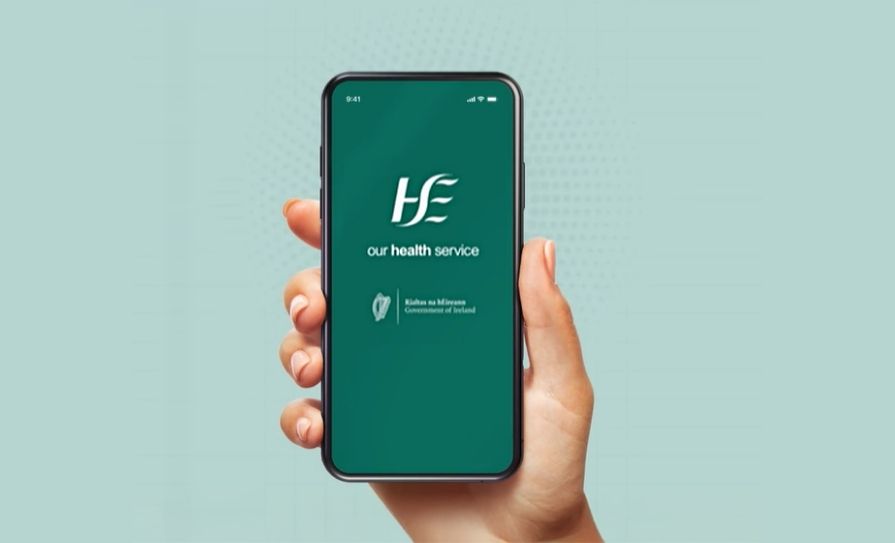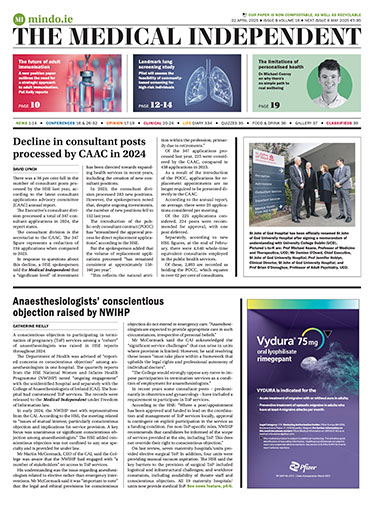The public-only consultant contract (POCC) has led to greater “flexibility” in some service delivery, according to the HSE.
At the HSE people and culture committee meeting in July, Chief People Officer Ms Anne Marie Hoey updated members on the impact of the POCC.
Ms Hoey highlighted “increased interest in positions in the HSE from overseas”, according to meeting minutes. Twenty per cent of applicants for consultant positions were from outside Ireland, thereby “improving” the opportunities to fill these posts.
The committee was informed that “progress” in terms of flexibility in service delivery was “beginning to emerge”.
The meeting was told there was a 60 per cent uptake rate of the POCC across urgent and emergency care (UEC) relevant specialties (that is, anaesthesiology, emergency medicine, radiology, and general medicine).
Working outside core hours was reported for 64 per cent of these UEC consultants on the new contract, with variation across specialties (for example, emergency medicine was 95 per cent). Similar variation was noted in regard to working on Saturdays, with a 34 per cent overall rate reported, but reaching 83 per cent in emergency medicine.
“While direct correlation cannot be drawn given data limitations, the greater presence and availability of senior decision-makers on-site has been reported to be contributing to the positive national trends in Saturday discharge rates (33.9 per cent increase),” according to meeting minutes.
In June, the Sláintecare programme board meeting also discussed the impact of the POCC on consultant working arrangements.
Members “noted the continued strong uptake” of the POCC and “expressed expectation” that the contract will be critical to “driving productivity, improving waiting times, trolley numbers, and other access metrics”.
A HSE spokesperson told the Medical Independent (MI) that, as of 4 September, 2,557 consultants had signed the POCC. Of these, 599 were new-entrants and 1,958 had changed their contract.
Meanwhile, the HSE safety and quality committee “expressed its concern” over “the high number” of consultants employed by the Executive who were not on the specialist division of the Medical Council’s register.
The issue was raised at the committee’s meeting in May, where members also voiced concern about “the slow reduction… over the past number of years ” in the number of such consultants employed by the HSE.
According to figures provided to MI, some 128 consultants were employed by the HSE across all health regions who were not on the specialist register as of 26 August.
HSE Dublin and Midlands was the health region employing the highest number of consultants not on the specialist register (38).












Leave a Reply
You must be logged in to post a comment.